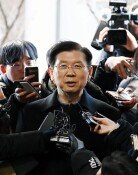New Normal, Market 5.0 and the Role of Korean Companies
New Normal, Market 5.0 and the Role of Korean Companies
Posted April. 13, 2022 08:17,
Updated April. 13, 2022 08:18

To secure the sustainability of this remarkable business growth, it is essential to continuously detect and respond to the rapidly changing environment. The digital revolution that has overtaken all industries and the shift in thinking and behavior brought about by COVID-19 are now demanding the New Normal from countries, companies, and individuals, and how to effectively respond to this is directly related to survival, and by extension, growth.
As a direction to be pursued in the face of constant changes and challenges, Market 3.0 emphasized the human-centric philosophy, while Market 4.0 demanded a rapid transition from traditional marketing to digital marketing. Now, during this era of the New Normal, it is time to think about what comes next, and that is where Market 5.0 comes in. In this latest version, efforts to actively utilize technology are demanded to realize true humanity, combining the human-centric philosophy of Market 3.0 and Market 4.0’s core of digital technology.
Of utmost importance is the need to understand Hi-Touch, which is as important as Hi-Tech. Anchored on the point that technology exists for the realization of humanity, it is necessary to consider the needs of customers and consumers in depth and create appealing values. The core of Market 5.0 is that even though digital technology gradually evolves, the ultimate goal is to be human, which I have emphasized in my recent book, Human to Human (H2H) Marketing.
Through Market 5.0, it may be possible to solve the generational gap, wealth polarization, and digital divide, which everyone must work together to solve. It is necessary to understand generational diversity and generational change and provide human-centric solutions, and to use technology appropriately to solve the problems of the polarized contemporary society. Moreover, efforts to take optimal advantage of opportunities rather than threats caused by the acceleration of digitalization are also required.
By researching on corporate management and marketing cases in Korea, I verified their evolution to Market 5.0 and their positive efforts and achievements. Samsung Electronics aims to create a new growth engine centered on customer experience through the organizational integration of household appliances and mobile sectors, while Kakao is creating a new mobile ecosystem based on AI and big data. These illustrate the business efforts and achievements in creating customer experiences based on Hi-Touch, together with MarTech, which integrated digital technology with marketing. In addition to the creative characteristics of Koreans, I believe that active acceptance of digital innovation also plays a significant role.
I recently came across the case of Amway, the world's number one company in direct selling, is also interesting. Amway has been pursuing Hi-Touch for past 63 years with a customized approach for each target segmented based on H2H. The fact that more than 70% of the business owners are women is also contributing positively to the realization of Hi-Touch & Hi-Tech.
Amway Korea is also impressive. Based on its in-depth understanding of major target markets including millennials and young mothers, Amway has been providing a customized & segmented approach, and making various efforts to understand business opportunities. It is evaluated that Amway Korea's digital transformation puts human connection at the center of its strategy, not the introduction of technology. Smart Bike, which was launched in 2021 for the first time among global branches by applying the metaverse concept, is an example of strengthening social connectivity and innovating experiences through technology. Its effort to create a human-centric, valuable way of living through products, services, experience, and lifestyle including customized solutions for generational diversity, various programs to cope with polarization, and strengthening H2H connections through digital is strategic.
In the era of the New Normal, Korean companies' efforts to realize Market 5.0 must be continued amid changes and challenges. They should more actively think about how to actively utilize technology based on human technology by anchoring on the human-centric philosophy, which is the core of Market 5.0. Ultimately, it will be possible to realize a better life for people and ultimately a better society, which is also the purpose of marketing, and I believe and expect that this should be the role of Korean companies.
Philip Kotler, Distinguished Professor at the Kellogg School of Management







